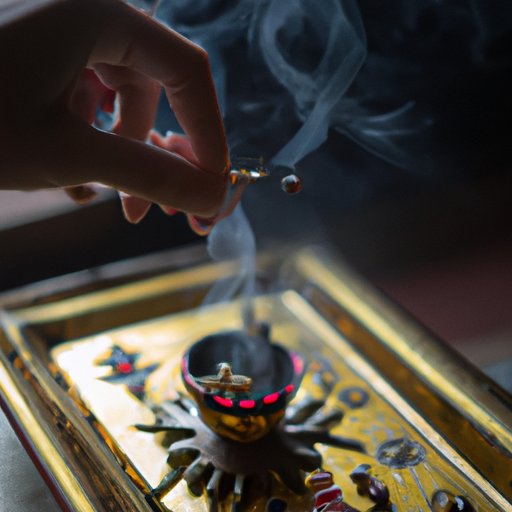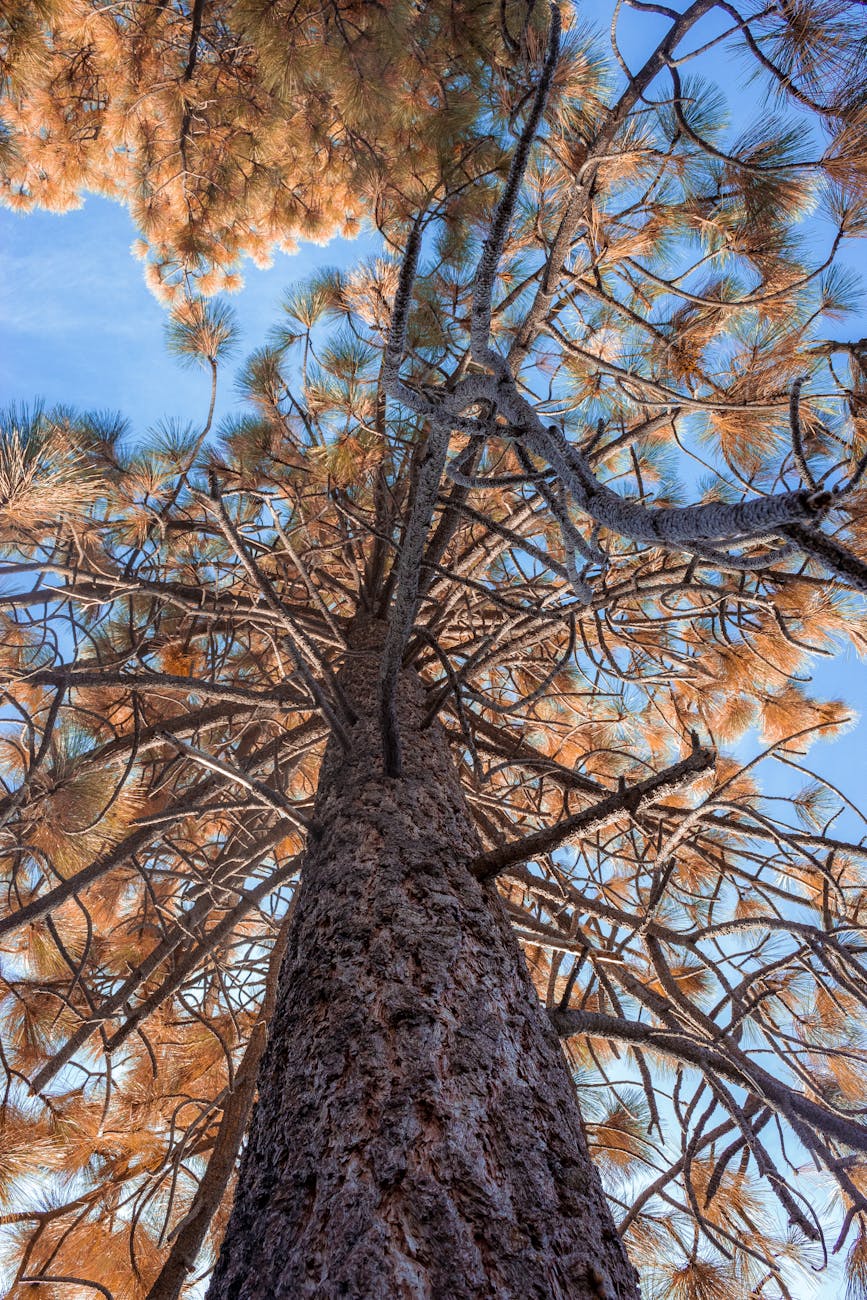
Introduction
Burning incense is a time-honored tradition that has been practiced for centuries. It is widely known for its calming fragrance and its ability to stimulate the brain, thereby enhancing the senses. In this article, we will guide you towards an optimal incense burning experience by giving you tips and tricks on how to choose the right incense, burn it safely, create your own blends, and even clean up afterward. Whether you are just starting or a seasoned user, this article is for you!
Step-by-Step Guide: How to Burn Incense Sticks
Before you light that incense, it’s important to know how to do it safely. Follow these simple steps to make it easy and enjoyable for you:
Choosing the right incense sticks
There are many types of incense sticks in the market, and oftentimes it can be overwhelming to decide which one to try. Whether you’re looking for a specific scent or a certain effect, doing your research beforehand never hurts. Some suggestions would be to check out reviews, reputable brands, or even try a sampler pack to figure out your preferences.
Setting up your space
Choose an appropriate location to burn your incense, one where the smoke can easily dissipate. It’s best to place the incense burner on a flat, fire-resistant surface before lighting it to avoid any accidents. You can also add a small amount of sand or salt to the burner to help absorb heat and prevent the stick from tipping over.
Lighting the incense
Hold the tip of the incense stick to the flame of a lighter or match. Wait until it catches fire and then gently blow the flame out. It’s important to let the incense smolder gently so you can enjoy the fragrance without it burning too quickly. If you notice that the incense is burning too fast, gently blow it out and try again with a smaller flame.
Placing the incense in the right spot
Once the incense stick is lit, place it in an incense holder or stand and sit it on your designated surface. Keep in mind that if placed too close to other objects, the smoke may affect the smell and quality of the fragrance. Allow the incense to burn completely before putting it out.
Tips for a better burning experience
- Always keep an eye on burning incense to prevent any accidents from occurring.
- Don’t overcrowd your space with too many smells; this can overwhelm your senses.
- If you want to enjoy the scent without the smoke, try using a diffuser instead.
Exploring Incense Types and Their Benefits
Each type of incense has a unique scent and purpose, whether it be for relaxation, meditation, or spiritual purpose. Discover the many types of incense sticks below:

Types of incense and their unique properties
- Nag Champa: Has a strong musky floral scent that is used for meditation and relaxation.
- Cedar: Its smoke has a calming and grounding effect, known to promote purifying properties.
- Lavender: Its sweet floral scent is known to calm and soothe nerves while promoting relaxation.
- Sandalwood: Its warm woody scent is used for meditation, spiritual practices, and relaxation.
- Frankincense: Its rich spicy scent is used for meditation, spiritual and emotional balance, and promoting inner peace.
Benefits of burning different scents for relaxation, meditation, or spiritual purposes
Incense has been known to have various benefits for relaxation, meditation, and spiritual practices. Burning incense can help to:
- Reduce anxiety and stress.
- Enhance mindfulness during meditation.
- Encourage spiritual growth and connection.
- Relax the mind and body to enhance sleep quality.
- Refresh and purify the air.
Overview of popular scents and their uses
Here are some popular scents and their primary uses:

- Nag Champa: Meditation and relaxation
- Lavender: Relaxation, sleep enhancement, and stress relief
- Sandalwood: Meditation, relaxation, and connection to spirituality
- Frankincense: Spiritual practices, emotional balance, and meditation
Safety Tips to Keep in Mind While Burning Incense
Burning incense is safe if proper precautions are taken. Here are some tips to keep in mind:
Proper ventilation
Burning incense produces smoke, therefore having proper ventilation is necessary to avoid inhaling a significant amount of smoke. Open a window or door to encourage airflow.
Careful handling of lit incense
It’s important to be careful when handling lit incense. Ensure that the stick is securely placed in an incense holder to avoid it from tipping over, and avoid touching the lit tip directly to prevent accidental burns.
Keeping incense away from children and pets
Since incense sticks are usually sharp and pointed, they pose a choking hazard. Additionally, they can be harmful to your pets as not all scents are suitable for animals. It’s essential to keep them out of reach to avoid any accidents.
DIY Incense: Making Incense at Home Using Natural Ingredients
There’s something charming about creating your own custom-made incense using natural ingredients. Here’s how you can make your own incense sticks:
Necessary materials and tools
- Charcoal
- Essential oils, herbs, or ground spices
- Dried flowers or resins
- Isopropyl alcohol
- Paper, pencil and measuring cups
- Bamboo sticks, string and a tray
Step-by-step guide to making your own incense sticks/blends
- Start by grinding the herbs, resins, and dried flowers into a fine powder.
- Add a few drops of essential oil to the mixture and mix well.
- Dissolve the charcoal with alcohol.
- Mix the charcoal with your herbal blend.
- Add water to the mixture to make the dough-like consistency.
- Squeeze the mixture around the bamboo stick
- Place the sticks carefully on the tray and let them dry for at least a day.
Tips for creating your own scent profiles
- Experiment with different scents until you find the perfect blend.
- Research the properties of each ingredient to ensure a balance of benefits.
- Add natural fragrances to elevate your incense blend.
Cleaning Incense Burners: How to Remove Ash and Residues from Holders
Cleaning incense burners is necessary to avoid having ash or burnt resin build-up. Here’s how you can keep your burners in good condition:
Safe ways to clean incense burners
To avoid damaging your incense holder, use a gentle cleaning solution like warm water and mild dish soap or white vinegar. Apply the solution onto a soft cloth and wipe the holder carefully. Apply some light pressure to scrape off any residue and rinse the holder with warm water.
Materials to use for cleaning
- A soft cloth or sponge
- Mild soap or white vinegar
- An old toothbrush for hard-to-reach places
- A bowl of warm water for rinsing
Tips to make cleaning more effective and efficient
- Clean your incense holder often to avoid stubborn build-up in the future.
- Use a toothpick or another skinny tool to remove ash from small holes in the holder.
- Let incense residue soak for a bit before attempting to clean it off.
Popular Incense Blends for Specific Needs
Incense blends are a combination of fragrances designed to create a specific effect. Here’s an overview of popular incense blends and their uses:
Introduction to popular incense blends
- Love magic blend: A combination of rose, patchouli, jasmine, and ylang-ylang used to create a loving and relaxing atmosphere.
- Healing blend: A combination of rosemary, lemon, eucalyptus, and lavender used for aromatherapy, relaxation, and relieving stress.
- Grounding blend: A combination of cedar, cinnamon, and sandalwood used for relaxing, balancing, and creating a sense of calmness.
Overview of scent profiles and their uses
- Rose: Love and relaxation, enhances the female spirit.
- Frankincense: Spirituality, peace, and emotional balance
- Lavender: Relaxation, soothing, and stress relief
- Sage: Purification, removing negative energy, and spiritual growth
How to choose the right incense blend for your specific needs
- Research the different types of incense blends and their effects.
- Consider your intentions and needs in selecting an incense blend.
- Try different scents to find the best combination for you.
Conclusion
In conclusion, burning incense can be an enjoyable and beneficial experience when done properly. It’s essential to choose the right incense stick, set it up in the best spot, and burn it safely. You can also create your own incense blend or try different scents to find the best combination for you. Incense burning is a time-honored tradition, and it’s important to embrace it safely and comfortably for an optimal experience.
Final tips for optimal incense burning experience
- Choose a scent that resonates with your mood or intention.
- Take time to enjoy the fragrance and relax.
- Ensure proper ventilation and safety measures are in place.
- Remember to clean your incense holder regularly.





